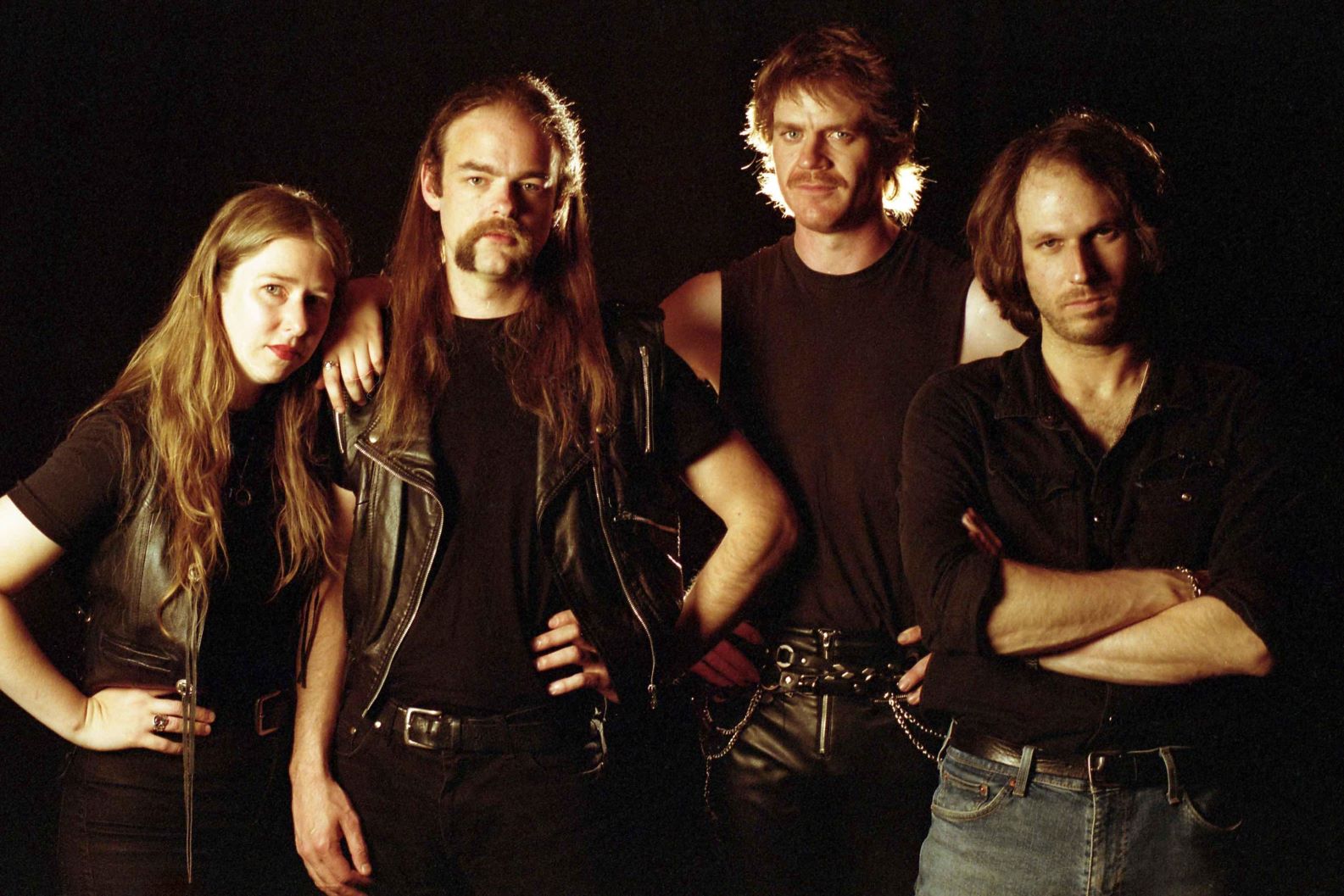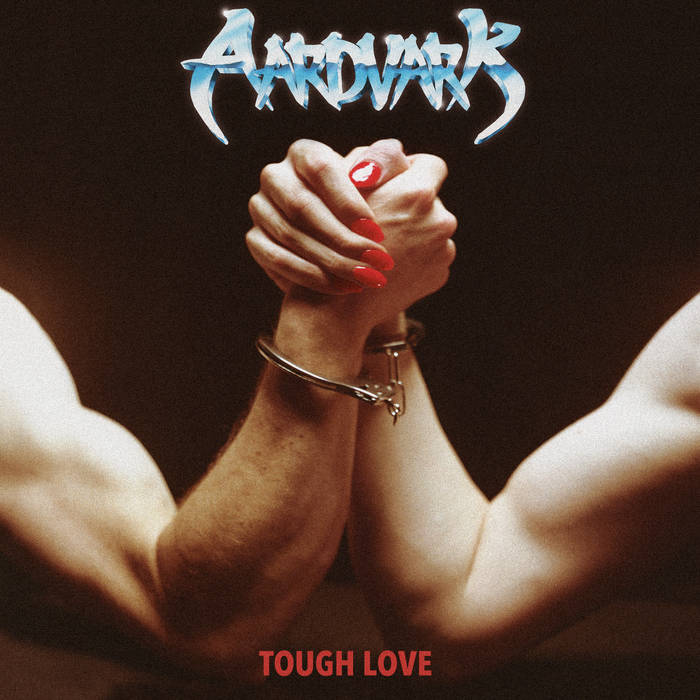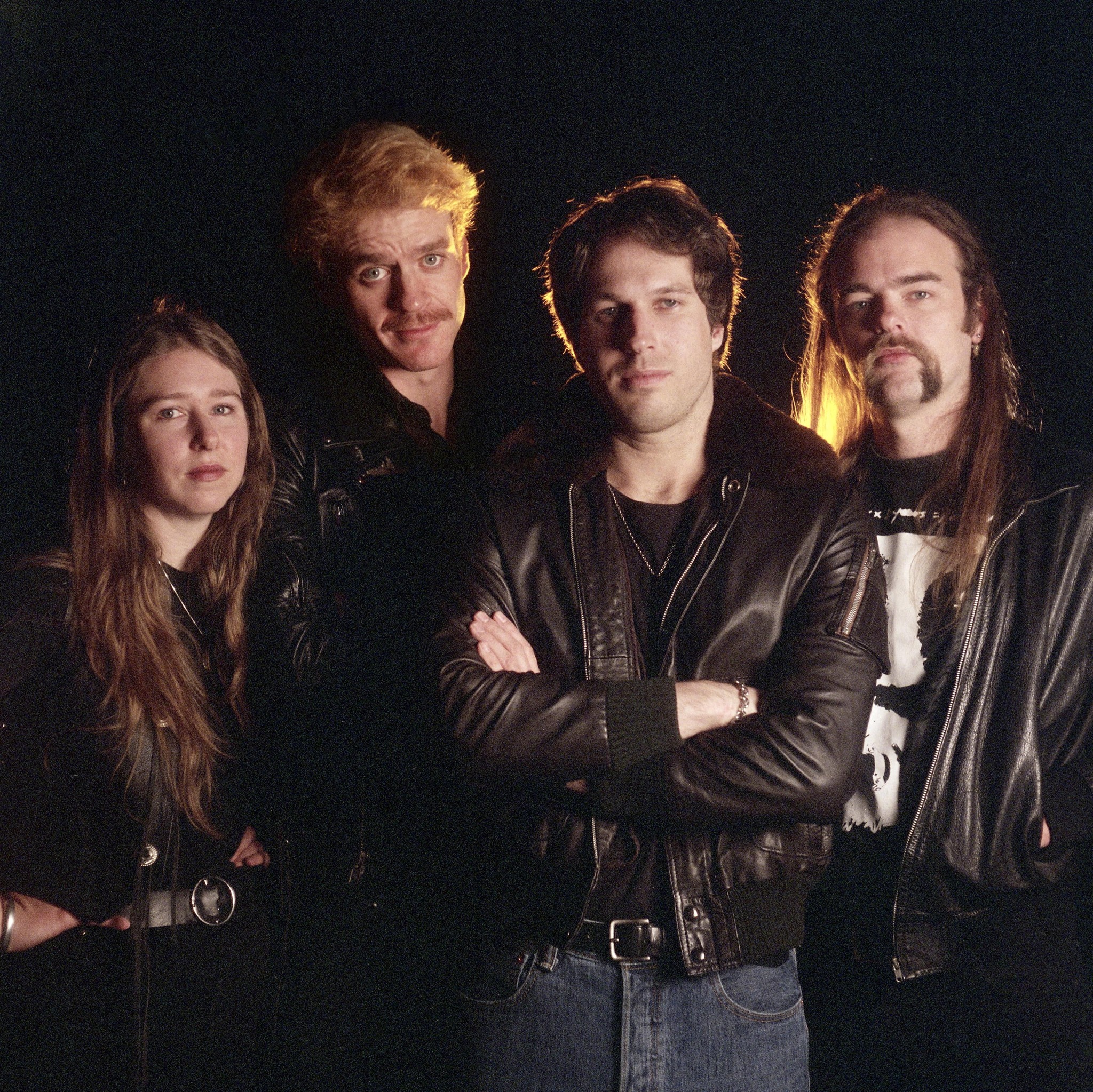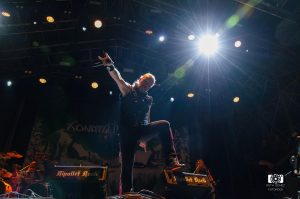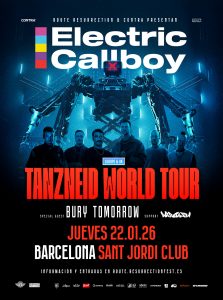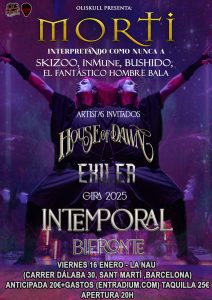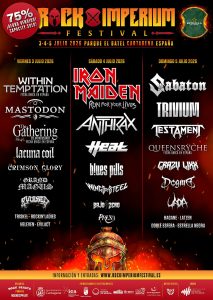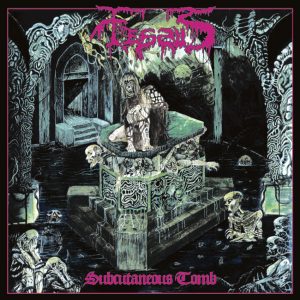Loud Voices, High Hammers: Aardvark’s Stand on Inclusivity, Empowerment, and the Metal Scene
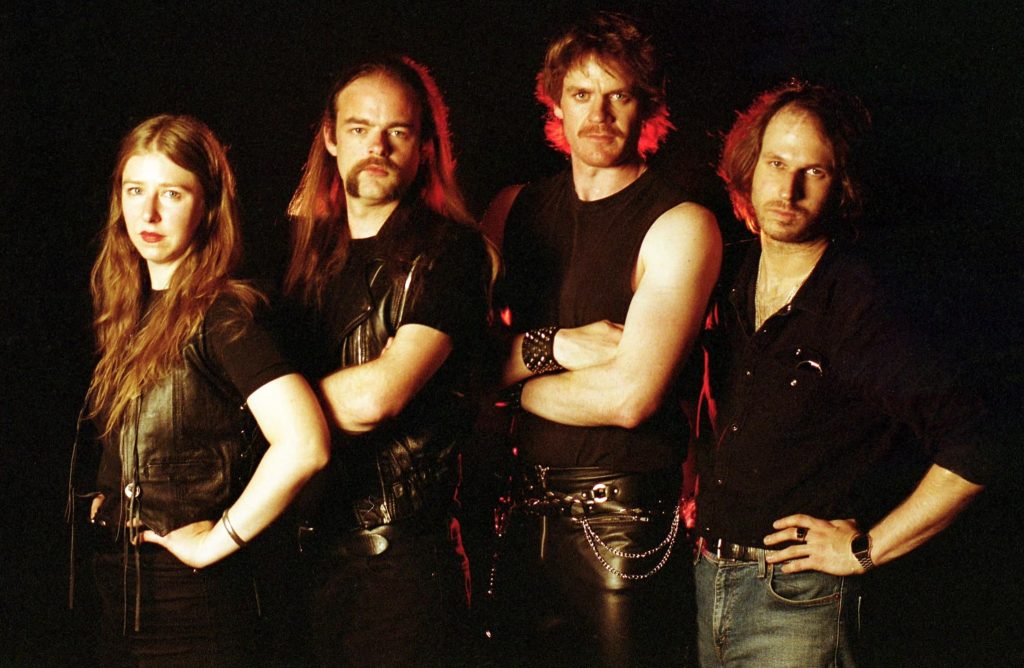
In this interview with Aardvark, the rising heavy metal band from Australia, we dive into the social and political undercurrents driving their music. Frontman Ed Vaark opens up about the themes of resilience and personal strength in their debut album Tough Love, the challenges of navigating the ever-evolving music industry, and the empowering role of heavy metal in fostering inclusivity and community. From addressing personal struggles to championing diversity in the male-dominated metal scene, Aardvark offers a raw and honest perspective on music’s power to inspire both personal and societal change.
Music and Sound
- The Title Tough Love:
The title of your debut album, Tough Love, suggests a theme of resilience and personal strength. How does this concept of “tough love” reflect the themes and messages throughout the album, and what do you hope listeners take away from it?
I think I have always really liked double entendres in song titles, and this is one of those cases, but it’s basically attempting to encapsulate the idea of there being strength in sensitivity. I don’t know if I’d necessarily say that the album has a cohesive theme; some songs are more personal and/or metaphorical while others are a bit more escapist and fun. I suppose this reflects my experience of existence in some way, there is no one ideology or perspective, but rather, a contrasting spectrum of experiences.
- Embracing Tradition in Songwriting:
Aardvark’s music embodies a traditional and raw heavy metal sound. How do you approach songwriting to maintain this classic style while ensuring your music feels authentic and true to the genre’s roots?
It’s a good question with maybe a bit of a disappointing answer. Essentially, I grew up listening to NWOBHM and Traditional Metal and it was one of only a few genres that actually connected with me on a deep level. People often say that we accurately capture the feeling of 80s classic heavy metal, but the disappointing truth is that, while we’re aware of what we are, we aren’t really consciously trying to make it sound or feel ‘traditional’. The songwriting and production process was pretty instinctual for us, and because this is the music I’ve listened to all my life, the natural expression of that genre aligns with a more traditional sound.
- Energy in Recording vs. Live Performances:
Your music has a raw, energetic quality. How do you capture this live energy in the studio? Are there particular techniques or philosophies you use to ensure your recordings match the intensity of your live shows?
Thank you! The funny thing is, when we recorded the album, we hadn’t actually played live at all as a band, so unfortunately, I don’t think the album does capture the intensity of our live show!
The other guys (and girl) of the band had all accumulated a fair bit of experience in other bands, so I guess they had some confidence there, whereas I haven’t been in a band since I was 17 (33 now). I really didn’t know what the hell I was doing! Now that we’ve played close to 25 shows in the last year, I think my ethos around the recording process has changed a lot and I’d do almost everything differently. No more click tracks in the studio, do the lead guitar and vocals in an environment where there’s no time pressure and have all rhythm tracks laid down live as a band. I think these things will make a bi difference in producing our second album.
- Addressing Hardship and Struggle:
The album touches on themes of hardship and struggle. Are these themes drawn from personal experiences, or do they reflect broader societal issues? How do you weave these concepts into your lyrics and music?
I guess I’m a pretty open book of a person, as the saying goes. Much of the joy I get from writing music comes from expressing whatever it is I want to express at the time, so yeah, a lot of the lyrics are personal. I’m not much of a ‘publicly talk about social issues’ person, of course I have my values and opinions on world issues, however, I much prefer to connect over similarities through music than tell people they’re wrong for believing the opposite of what I believe in.
As far as the process of weaving the lyrics and music together, it’s always been pretty natural and not very cognitive. I usually start out with a song title and write a chorus idea around that, then the rest of the song comes with rough vocal and guitar melodies. Lyrics are the last piece of the puzzle.
- Visual and Artistic Identity:
How do you use visual elements like album art and stage presence to enhance the themes of Tough Love? Is creating a strong visual identity important to you, and how does it complement your musical message?
The visual elements are hugely important to me. For most of my life, my primary discipline has been film, but I’m also into graphic design. I always strive for the visuals to be as exciting as the music. I love good album art, so creating a design that I was satisfied with was always a priority. The concept for the cover of *Tough Love* was devised by Dylan (our drummer) and me after a recording session, and I feel it’s a strong representation of the album. Ultimately, it’s all about personal self-expression, just like the music, which is where the cohesion comes from. Heavy metal is an exciting genre, so we aim to make both our shows and our looks equally thrilling.
The Scene and Identity
- Australian Metal Scene:
The Australian metal scene is rich but often underrepresented. How does Aardvark fit into this scene, and what role do you think your band plays in shaping its future? How has the local community influenced your music?
There’s a big extreme metal scene here and a big rock n’ roll / punk scene, but almost no classic heavy metal bands. There’s ‘Bengal Tigers’ who are still going strong, and probably our only legacy band. We also have some friends locally with ‘FLY!’ ‘Reaper’ and ‘Burnout’, who are up and coming here in Melbourne.
As far as the role we play, I have no idea! It’s not something I think about too much. I think the positive, supportive energy the Melbourne scene has offered us has been super encouraging and inspiring, and is something, I hope, that we can offer in return to other new bands. We wouldn’t have achieved any of the milestones we have without our ‘hometown heroes’, which is something we’re really grateful to have.
- Metal’s Evolving Landscape:
With the rise of digital platforms and changing music consumption habits, how do you see the role of metal bands evolving? What challenges do you face as a new band in this shifting landscape, and how do you address them?
It’s amazing seeing how far our music has gotten in the world thanks to the internet and streaming services. For a project that essentially started as a hobby, to have now been distributed across the world thanks to Dying Victims Productions and everyone who’s shown an interest in us, is just gobsmacking and something I certainly never imagined would’ve happened. As far as the role it has in metal bands evolving, I have no idea. Evolution isn’t something I think about outside of the music itself.
Now that I’ve said that, let’s delve into the challenges that come with it! It’s no secret that the music industry (like many creative industries) is not artist friendly. While there isn’t a lack of profit per se, very little of that profit ever gets back to the artist. I think it’s particularly hard for heavy metal bands; It’s a niche genre with a decent underground following, but without the support of the mainstream. Which in my opinion, makes it more or less impossible to make a living off the music alone, regardless of how hard one works. If there wasn’t passion from the artist, I’m sure we wouldn’t have music at all. I don’t know what the solution to this is, hopefully one day, the powers that be will recognise the inherent unfairness and regulate the fat cats that are taking all the money!
3. Nostalgia vs. Modern Influences:
Your music pays homage to classic heavy metal while feeling fresh and relevant. How do you balance nostalgic elements with modern influences to create something that resonates with both long-time fans and new listeners?
Thanks, I appreciate that! Honestly, we’re not really focussing on what is modern or what is nostalgic, we’re just kind of creating what we like, in whichever form that takes. So unfortunately, as far as balancing modernity and nostalgia, I’d just be speculating. I certainly hope it appeals to fans of all types of music, but that’s not really for me to say. Might have to leave this one up to the people to answer.
- Cultural Impact of Metal:
Heavy metal often tells powerful stories and reflects cultural narratives. Do you see your music as contributing to a broader cultural or social conversation? How do you view the role of metal in addressing or reflecting societal issues?
I totally appreciate music that does this, but we’re really just trying to play music that connects on an emotional level. Personally, I believe that that sort of connection is what creates a fertile environment for positive social and cultural change. If anything, I think that heavy metal empowers the underdog and offers a place for people on the fringes of society where we can belong.
Social and Political Perspectives
- Empowerment Through Music:
Music can be a powerful tool for empowerment. How do you hope your music impacts your listeners, especially those who might find strength or solace in it? Do you see Aardvark’s work as part of a larger movement or message?
I don’t see Aardvark’s work as part of a larger movement, but, as stated above, empowerment is the name of the game. The messages in the music aim to foster an environment of connectedness, through either similarity or difference. We all have a different experience of life, that no one can truly understand, but we can still relate to one another and can find strength in our vulnerability to do so.
- Industry Challenges for Independent Artists:
The music industry presents various challenges, especially for independent bands. What are some of the biggest hurdles you’ve faced, and how do you navigate them while staying true to your vision and maintaining your creative freedom?
I sort of covered this earlier, but I think the biggest hurdle for us is funding our path forward. We have our creative freedom, thankfully, but with a Europe tour in the near future (a very long trip from Australia!) and a second album in the works, next year is looking like a bit of a battle financially. Playing shows and selling merch does help, but even so, everything comes at a pretty significant financial loss. Still worth it to us!
- DIY Ethic vs. Label Influence:
Even with the support of Dying Victims Productions, maintaining a DIY ethos can be important for bands. How do you balance the benefits of working with a label while keeping your independent spirit and creative control?
Luckily we signed with Dying Victims who have not interfered in any way creatively. They’ve been super generous and supportive of us and our independent spirit from the start, couldn’t recommend them highly enough for that alone. I can’t speak to other labels as this is my only experience.
- Metal and Inclusivity:
Heavy metal has historically been a male-dominated genre. How do you feel about the progress towards inclusivity within the metal scene? What changes, if any, do you think are needed to make the genre more welcoming to diverse voices?
The more voices the better, really. I love heavy metal from all around the globe and from all different cultures. While the metal community has traditionally been male-domianted, I think it’s more inclusive than ever and metal fans, from what I’ve experienced, are all for it. As long as the music is loud and the hammers are high, everyone’s happy!
- Navigating Personal and Societal Struggles:
Personal and societal struggles often influence artistic expression. How do your personal experiences and views on social issues shape your music, and do you find it challenging to address these themes within a heavy metal context?
I think it influences everything I do. I’m not really sure how it shapes the music itself, because that process is pretty intuitive, but I havent found that divulging my personal experiences through music has isolated me in the community in any way. Like I said at the start, I’m a pretty ‘open book, what you see is what you get’ person. If you’re not into that, then fair enough, we aren’t for you, and that’s totally fine.
- Future Goals and Aspirations:
Looking ahead, what are your goals for Aardvark? Are there any specific projects, collaborations, or milestones you’re excited about, and how do you plan to continue evolving as a band?
The biggest thing at the moment is our Europe 2025 ‘Out of the Den’ tour that we’re currently booking will the help of Dustin (Riot City) from Road to Hell Bookings! Super exciting. We’re playing Heavy Metal Thunder Festival in the Czech Republic on 14th-15th of March and Dying Victims Attack Festival on the 12th of April. Between those festivals we’re currently booking a bunch of club shows, so if anyone out there wants us to play with you or at your venue, send us a message on instagram!
We’ve also mostly written our second album and are hoping to record that next year. The first album was written a really long time ago, so we’re pretty excited to expose everyone to the second album as we all feel like it’s a pretty big step up musically, while still staying true to the genre.
-That’s all from our side, thanks for taking the time. If you’d like to add some final words, it’s your turn.
Thanks so much for the thoughtful questions and for chatting with me, it’s been a pleasure. If anyone wants to know more, follow us on instagram at Aardvark.Band or for any other enquiries reach out at contact@aardvarkband.com
Thanks again,
Ed Vaark

